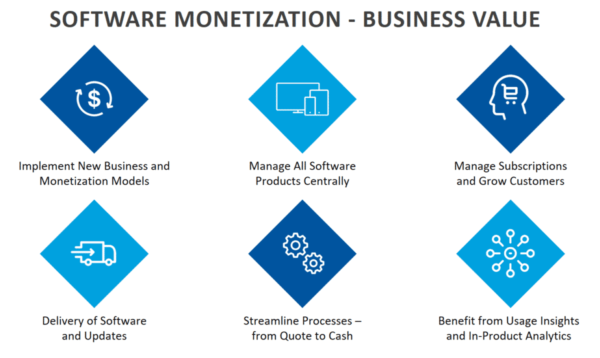Monetization
What is Monetization?
Definition:
Monetization Strategy Development involves the deliberate planning and implementation of strategies to generate revenue from a product, service, or content. This comprehensive approach focuses on maximizing income streams through various channels, ensuring sustainable profitability for a business or organization. Monetization strategies can be applied to different types of offerings, including digital products, online platforms, content, and more.
Analogy:
Think of monetization strategy development as the financial blueprint for a business. Similar to how a well-structured financial plan guides a company toward profitability, a monetization strategy outlines the methods and channels through which revenue is generated, ensuring a sustainable and profitable business model.
Further Description:
Monetization strategy development encompasses several key elements:
Product Pricing: Determine the most effective pricing strategy for products or services. This may include subscription models, one-time purchases, freemium models, or tiered pricing structures.
Advertising and Sponsorships: Explore opportunities for advertising and sponsorships as a means of generating revenue. This could involve partnerships with brands, display advertising, or sponsored content.
Subscription Models: Implement subscription-based models where users pay a recurring fee for access to premium features, content, or services.
Affiliate Marketing: Incorporate affiliate marketing strategies, where businesses earn a commission for promoting other companies’ products or services.
Licensing and Partnerships: Explore opportunities for licensing intellectual property or forming partnerships that allow for the monetization of proprietary assets.
E-commerce Integration: If applicable, integrate e-commerce functionality to sell physical or digital goods directly to consumers.
Data Monetization: Strategically leverage data assets, ensuring compliance with privacy regulations, to generate revenue through analytics, insights, or targeted advertising.
In-App Purchases: For digital platforms and mobile apps, consider implementing in-app purchases for virtual goods, additional features, or upgrades.
Why is Monetization Strategy Development Important?
Revenue Diversification: Developing a comprehensive monetization strategy allows for diversification of revenue streams, reducing reliance on a single source and increasing financial stability.
Profitability: A well-executed monetization strategy directly contributes to the profitability of a business, ensuring that the cost of production and operation is outweighed by generated revenue.
Sustainability: Sustainable monetization models contribute to the long-term viability of a business, allowing it to adapt to market changes and evolving consumer behaviors.
Investor Confidence: A clear and effective monetization strategy enhances investor confidence by demonstrating a thoughtful approach to revenue generation and financial sustainability.
Examples and Usage:
Netflix: Netflix employs a subscription-based monetization model, where users pay a monthly fee for access to a library of streaming content. This approach has made Netflix a leading player in the entertainment industry.
Google AdSense: Websites and content creators often use Google AdSense to monetize their platforms through display advertising. Advertisers pay for ad placements, and content creators earn revenue based on clicks and impressions.
Etsy: Etsy is an e-commerce platform that monetizes by charging sellers fees for listing products, transaction fees on sales, and additional fees for optional services. This monetization model supports independent artisans and small businesses.
Key Takeaways:
Diversify Revenue Streams: Explore multiple channels for revenue generation to reduce dependency on a single source.
Choose Appropriate Pricing Models: Tailor pricing models to match the value proposition of products or services, considering factors such as user expectations and market dynamics.
Stay Adaptable: Continuously evaluate and adapt the monetization strategy to align with market trends, consumer behavior, and industry changes.
Prioritize User Experience: While maximizing revenue is crucial, prioritize a positive user experience to build trust and retain customers.
Comply with Regulations: Ensure that monetization strategies comply with relevant laws and regulations, particularly concerning data privacy and consumer protection.





